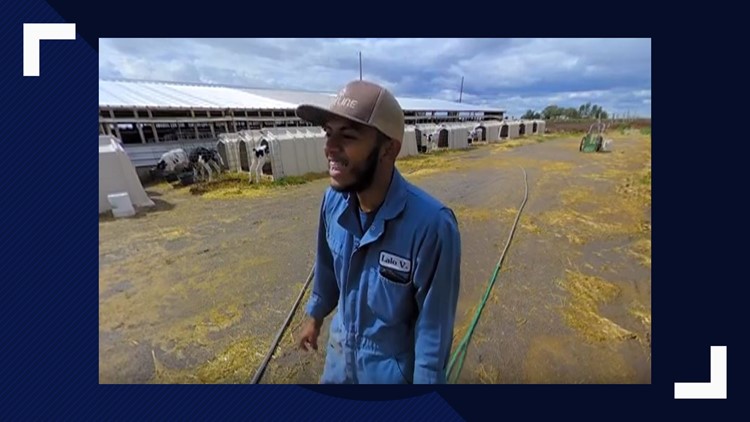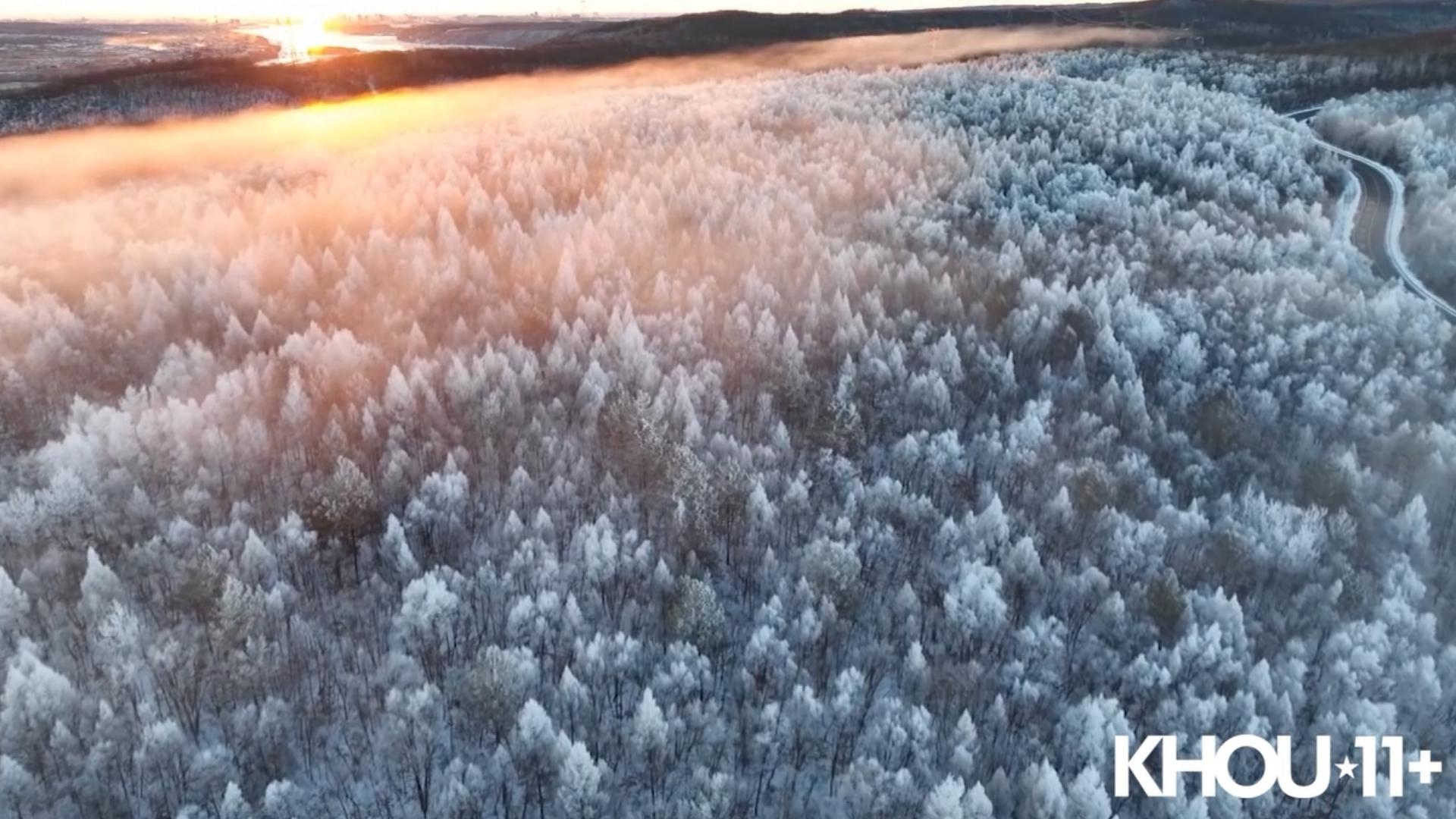TWIN FALLS, Idaho — Editor's note: Scroll down to watch the 360-degree story on YouTube. The experience is best on mobile in the YouTube app.
At Chobani's plant in Twin Falls, nearly a thousand employees work three shifts a day to turn out tons of yogurt.
It's a process that is prompted by 64,000 pounds of raw milk, hauled into the facility by milk trucks at all hours of the day.
While running at full-capacity, Chobani can take in 6 million pounds of milk in one day. To keep it flowing, and to keep it fresh, Chobani keeps it coming from close by, buying milk from about 50 Idaho farms within a 100-mile radius of the company's delivery room.
"It's why we came here," says Alyson Outen, the company's director of community relations. "We wouldn't be here if the dairy industry wasn't as robust as it is here."
WATCH BELOW IN 360 (the experience is best in the YouTube app):
"When Hamdi, our founder and CEO, Hamdi Ulukaya, was looking for a second facility he had certain criteria," she continues. "It had to be a good business community, plentiful workforce available, and there had to be a dairy industry. So it was a trifecta when he discovered Idaho and the dairy industry has been our number one partner in this process since day one."
A partnership implies an investment by both parties.
Avelardo Vargas has certainly put in his share.
"Hey, Ryan?" Avelardo calls out to his boss while attaching cows to a milking machine. "This machine is not working, well it's a little weak."
At this 3rd-generation dairy about a dozen miles outside of Rupert, Idaho, the recent high school graduate has worked off and on for the past several years. Whether it's assisting in the twice-a-day milking or taking some of that milk to feed young calves, the 18 year-old, rain or shine, school or no school, will spend 6 hours a day on the farm.
Someday he hopes to own his own. But these days, Avelardo, or Lalo - as his mom calls him because she couldn't imagine calling her baby boy Avelardo - works in close contact with about 300 head of Holsteins.
It's a job not too many kids would want to do.
"No, that's definitely true," Lalo agrees. "It's hard work but it teaches you a lot, sometimes you just have to roll up the sleeves and get dirty."
It's a work ethic Lalo learned from his dad, who used to bring him here to work as a young boy.
"Originally, when my dad brought me here, I was like, 'Man, I don't want to do this my whole life, I better start doing good in school,'" he says. "Then I started doing good in school but I just fell in love with this industry. It's taught me so much and this is where families are truly born, at the work place. There's not many other places that will give you that family bond at the work place like a dairy will."
A family farm will do the same thing. On the Dimond Ranch just outside of Jerome, Raquel Dimond tries to tend to her calf, Geronimo, one of several animals she chases around on five acres.
"I guess it's what I've always known, I love animals," Raquel says in front of a pen of five hogs.
"I've traveled to big cities before and there's a lot of people, it's really loud," she says as one of her hogs squeals. "This is the kind of noise I like, not the loud city stuff."
Raquel, who has named all of her animals, also just graduated high school and wants to turn her love of animals into a career caring for them.
"I guess I want to be a veterinarian because not everything always goes perfect," she explains. "I mean, I've had piglets die and I don't like it and I never know if I'm doing everything I could. So my goal is to be a vet ... And I really can't see not having any animals so I decided I better be a vet."
That's where the Chobani partnership comes in. Raquel and Lalo are two of the first recipients of the company's scholar program, a plan to increase their investment in the future of dairy farming in Idaho.
$20,000 will go a long way at the University of Idaho for these two. And even further for a boy who values the importance of honoring his father.
"So it's kinda like, like a mix of both," Lalo says of his desire to go on to college. "Pursing higher education because that's what you want, but staying close to the roots where I came from."
Roots that will then be strengthened in an industry Chobani relies on to fill 8-thousand gallon trucks with milk.
"Keeps these trucks coming," Outen says. "Keeps the yogurt coming out the other end of this million-square-foot facility."
The Chobani Foundation is committing $320,000 in total to two universities to fund these applications: the Cornell University College of Agriculture and Life Sciences and the University of Idaho College of Agricultural and Life Sciences.
The goal is to create a pipeline of well-educated graduates, armed with future-forward skills and modern farm management capabilities, that is necessary to revitalize the dairy industry, protect its important agricultural legacy and ensure its future success.



